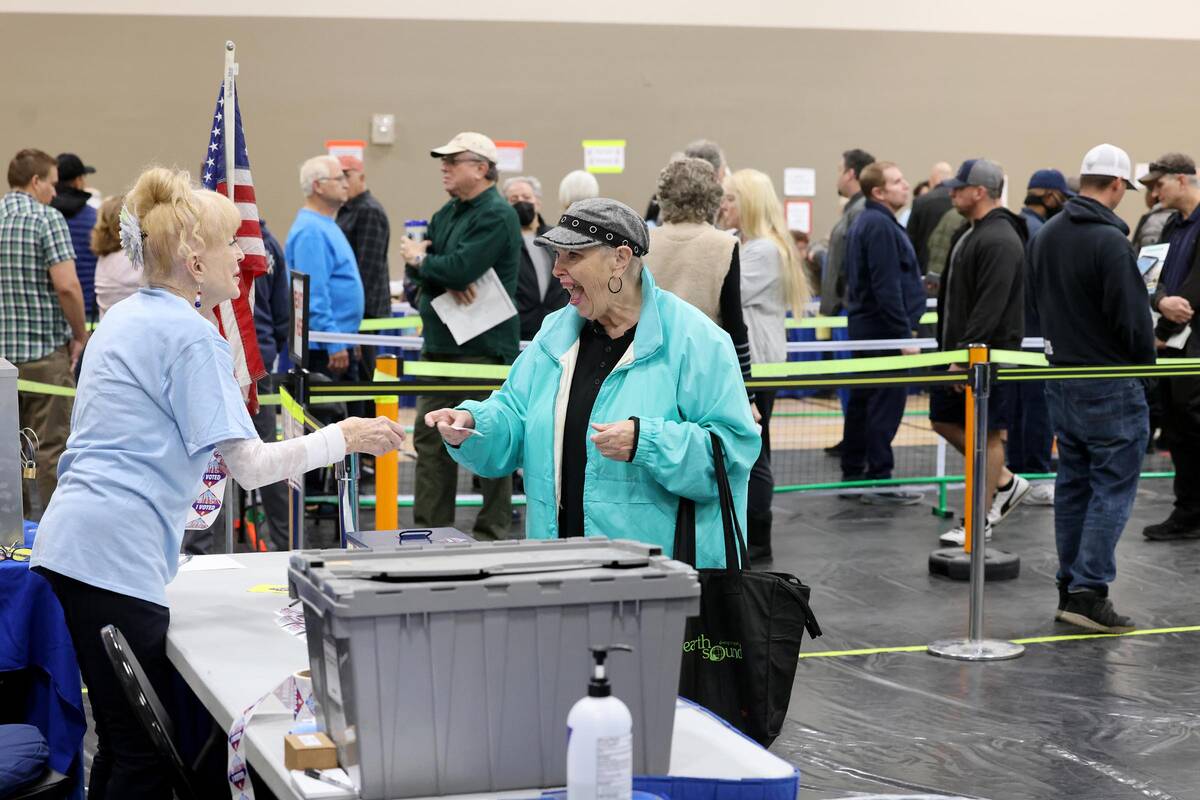EDITORIAL: Ranked ‘avoid’: Ranked choice voting increases ballot errors
Most people would agree that voters make mistakes — just look at the many subpar politicians they put in power. But that’s no excuse for implementing a complicated voting system that confuses citizens and exacerbates ballot errors.
In November, Nevadans will vote again on ballot Question 3. It’s a proposal to move Nevada to open primaries and ranked-choice voting. As a constitutional amendment, voters must approve it twice before it may be implemented. In 2022, the referendum passed 53-47.
See if you can follow this scheme. All candidates for an office would run in one combined primary. That election would be open to all registered voters, including nonpartisans. The top five vote getters would move on to the November election. Voters would then rank the candidates by preference. If a candidate receives a majority of the votes, he would be elected. But things get more complicated if no one wins outright.
In that case, the fifth-place candidate would be removed. The votes he received would be redistributed to the candidates his voters selected as their second choice. If a candidate receives a majority, he wins. If there isn’t a majority, then the fourth-place candidate, after this round of voting, is knocked out. The second- or third-place selection of his voters is redistributed to the remaining candidates. This continues until someone wins a majority.
That sounds confusing because it is. And a recent study from the University of Pennsylvania confirms this. The researchers focused on more than 3 million vote records in places that now use ranked-choice voting.
“In a typical ranked choice race, nearly 1-in-20 (4.8%) voters improperly marks their ballot in at least one way,” they wrote. “The rate of one type of improper marking (overvoting) is 14 times more likely to occur on a ranked-choice race than a non-ranked choice race that appears on the same ballot.”
Additionally, “votes in ranked-choice races are nearly 10 times more likely to be rejected due to an improper mark than votes in non-ranked choice races.”
That’s a disaster. The researchers’ understated conclusion is that the “findings raise key normative questions about voter participation and representation in ranked choice systems.”
That’s the academic way of saying, “Run away. Flee. Save yourselves.”
The current voting system is simple enough that a 3-year-old can explain it. The candidate who gets the most votes wins. No redistribution, re-ranking and recounting of votes. Many nonpartisan voters complain that they can’t vote in Democratic or Republican primaries and favor the jungle primary portion of Question 3. We’ll leave aside the argument that parties have the right to allow their own members to select candidates. Piggybacking the misguided fad known as ranked-choice voting on top of open primaries is an effort to deceive Nevada voters and should be a bridge too far.
Gimmicks won’t fix what ails the political process. They’ll only leave more people wondering if their vote counted. The University of Pennsylvania study is yet another reason why Nevadans should reject ranked-choice voting in November.

















